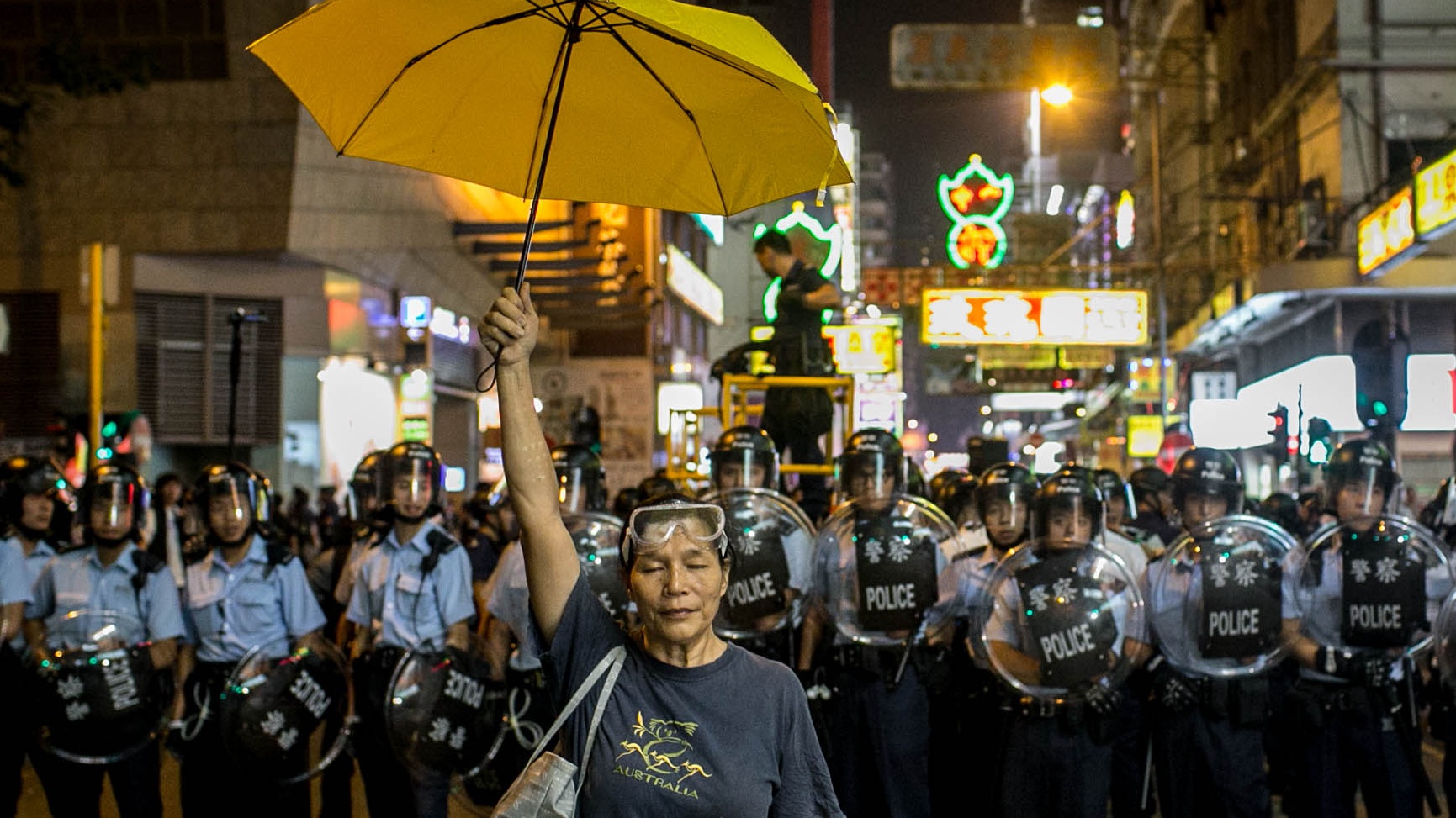What will life in Hong Kong be like under China’s new security law?
Human rights campaigners say controversial legislation threatens the territory’s autonomy

A free daily email with the biggest news stories of the day – and the best features from TheWeek.com
You are now subscribed
Your newsletter sign-up was successful
Hong Kong is facing a fresh wave of street protests after China’s parliament today approved new national security laws that will make it a crime to undermine Beijing’s authority in the territory.
Delegates at China’s National People’s Congress broke into applause after backing the bill by a vote of 2,878 to one, with six abstentions.
But pro-democracy activists had warned that the crackdown could spell “the end of Hong Kong”.
The Week
Escape your echo chamber. Get the facts behind the news, plus analysis from multiple perspectives.

Sign up for The Week's Free Newsletters
From our morning news briefing to a weekly Good News Newsletter, get the best of The Week delivered directly to your inbox.
From our morning news briefing to a weekly Good News Newsletter, get the best of The Week delivered directly to your inbox.
What do the new laws say?
The legislation is aimed at stamping out the protests that have swept the city over the last year, by banning “any acts or activities” that endanger China’s national security.
Such alleged threats to security “are often used in mainland China to silence dissidents and other political opponents”, says The Guardian.
The BBC says the new Hong Kong laws are expected to criminalise “secession”, meaning breaking away from the country, and “subversion”, defined as “undermining the power or authority of the central government”.
A free daily email with the biggest news stories of the day – and the best features from TheWeek.com
China’s ruling Communist Party is also planning to introduce harsh new punishments for “terrorism”, a charge that critics fear might be levelled against protesters, as well as criminalising “activities by foreign forces that interfere in Hong Kong”.
In addition, the resolution would allow Chinese “national security agencies” - potentially including police, security and intelligence forces - to operate in Hong Kong.
–––––––––––––––––––––––––––––––For a round-up of the most important stories from around the world - and a concise, refreshing and balanced take on the week’s news agenda - try The Week magazine. Start your trial subscription today –––––––––––––––––––––––––––––––
And the reaction?
Beijing has insisted that the “vast majority of Hong Kong residents would not be affected by the new measures”, says The Guardian.
But opponents claim that the new laws may be used not only to target protesters, but also to permanently undermine the “one country two systems” system that gives Hong Kong autonomy from the Chinese mainland.
These fears triggered street demonstrations across Hong Kong on Sunday, with riot police arresting at least 180 protesters, says the South China Morning Post.
“A water cannon truck was used and volleys of tear gas were fired in a series of confrontations as some radicals among the protesters defying the government’s coronavirus crowd restrictions blocked multiple roads, smashed traffic lights, lit small fires and hurled bricks dug up from pavements at police,” says the news site.
“It is definitely the start of a new but sad chapter for Hong Kong,” said pro-democracy legislator Claudia Mo. “Hong Kong as we knew it is finally dead.”
US Secretary of State Mike Pompeo has also warned that the developments mean Hong Kong can no longer be thought of as having “a high degree of autonomy” from mainland China.
“While the United States once hoped that free and prosperous Hong Kong would provide a model for authoritarian China, it is now clear that China is modelling Hong Kong after itself,” he said in a statement released on Wednesday.
China’s Foreign Ministry office in Hong Kong dismissed Pompeo’s remarks as “smears and distortion” that “prove the great urgency for the National People’s Congress to decide on enacting national security legislation for Hong Kong”.
-
 6 exquisite homes with vast acreage
6 exquisite homes with vast acreageFeature Featuring an off-the-grid contemporary home in New Mexico and lakefront farmhouse in Massachusetts
-
 Film reviews: ‘Wuthering Heights,’ ‘Good Luck, Have Fun, Don’t Die,’ and ‘Sirat’
Film reviews: ‘Wuthering Heights,’ ‘Good Luck, Have Fun, Don’t Die,’ and ‘Sirat’Feature An inconvenient love torments a would-be couple, a gonzo time traveler seeks to save humanity from AI, and a father’s desperate search goes deeply sideways
-
 Political cartoons for February 16
Political cartoons for February 16Cartoons Monday’s political cartoons include President's Day, a valentine from the Epstein files, and more
-
 Epstein files topple law CEO, roil UK government
Epstein files topple law CEO, roil UK governmentSpeed Read Peter Mandelson, Britain’s former ambassador to the US, is caught up in the scandal
-
 Iran and US prepare to meet after skirmishes
Iran and US prepare to meet after skirmishesSpeed Read The incident comes amid heightened tensions in the Middle East
-
 Israel retrieves final hostage’s body from Gaza
Israel retrieves final hostage’s body from GazaSpeed Read The 24-year-old police officer was killed during the initial Hamas attack
-
 China’s Xi targets top general in growing purge
China’s Xi targets top general in growing purgeSpeed Read Zhang Youxia is being investigated over ‘grave violations’ of the law
-
 Panama and Canada are negotiating over a crucial copper mine
Panama and Canada are negotiating over a crucial copper mineIn the Spotlight Panama is set to make a final decision on the mine this summer
-
 Why Greenland’s natural resources are nearly impossible to mine
Why Greenland’s natural resources are nearly impossible to mineThe Explainer The country’s natural landscape makes the task extremely difficult
-
 Iran cuts internet as protests escalate
Iran cuts internet as protests escalateSpeed Reada Government buildings across the country have been set on fire
-
 US nabs ‘shadow’ tanker claimed by Russia
US nabs ‘shadow’ tanker claimed by RussiaSpeed Read The ship was one of two vessels seized by the US military